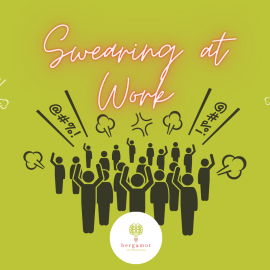
Don't Let HR Be Your Downfall
If you are a small business owner, you may think that HR is not a priority for you. After all, you have a small team, a friendly culture, and a flexible approach. You may not think you have the time, budget, or expertise to deal with HR issues. However, ignoring HR can be a costly mistake that can land you in hot water, costing you money, and damaging your reputation internally and externally.
Here are some of the common HR pitfalls that small businesses can fall into, and what proactive steps you can take to avoid them.
Common HR Pitfalls for Small Businesses & Proactive Steps To Avoid Them
⚠️ Not having clear policies and procedures
Without clear policies and procedures, you may face confusion, inconsistency, and disputes among your employees. You may also expose yourself to legal risks, such as discrimination, harassment, or unfair dismissal claims.
To avoid this pitfall, you should have an employee handbook that covers the essential topics, such as code of conduct, health and safety, leave and benefits, performance management, and grievance and disciplinary procedures. You should also ensure that your policies and procedures comply with the relevant laws and regulations, and that you communicate them to your employees and update them regularly.
⚠️ Poor hiring practices
Hiring is one of the most important and challenging HR tasks, as it can have a lasting impact on your organisation’s performance and culture. Poor hiring practices can result in hiring the wrong people, wasting time and money, and missing out on the right talent.
To avoid this pitfall, you should have a clear and consistent hiring process, such as defining your job requirements and criteria, sourcing and screening candidates, conducting interviews and assessments, and making and communicating your hiring decisions. You should also ensure that your hiring process is fair, objective, and compliant with the relevant laws and regulations, and everyone involved is trained.
⚠️ Not keeping accurate records
Keeping accurate records is not only a legal requirement, but also a good practice for managing your employees. Records can help you track attendance, performance, training, and development, as well as support your decisions and actions in case of any disputes or audits.
To avoid this pitfall, you should have a system for storing and maintaining your employee records, such as contracts, appraisals, payslips, and tax forms. You should also ensure that your records are secure, confidential, and compliant with the data protection laws.
⚠️ Not providing adequate training and development
Training and development is not only a benefit for your employees, but also an investment for your business. Training and development can help you improve your employees’ skills, knowledge, and productivity, as well as enhance their engagement, loyalty, and retention.
To avoid this pitfall, you should have a plan for identifying and addressing your employees’ training and development needs, such as performance reviews, talent reviews, induction, on-the-job training, coaching, mentoring, and external courses. You should also evaluate the effectiveness and impact of your training and development activities, and provide feedback and recognition to your employees.
⚠️ Not managing performance and feedback
Performance and feedback are essential for motivating, rewarding, and improving your employees. Performance and feedback can help you set clear expectations, goals, and standards for your employees, as well as monitor, measure, and appraise their performance.
To avoid this pitfall, you should have a system for conducting regular and constructive performance reviews and feedback sessions with your employees, such as one-to-one meetings, appraisals, and 360-degree feedback. You should also provide positive and negative feedback, as well as incentives and consequences, to your employees based on their performance.
⚠️ Not handling conflicts and complaints
Conflicts and complaints are inevitable in any workplace, and can have a negative impact on your employees’ morale, productivity, and teamwork. Conflicts and complaints can also escalate into legal issues, such as bullying, harassment, or discrimination claims.
To avoid this pitfall, you should have a process for resolving and preventing conflicts and complaints among your employees, such as a grievance policy and procedure, mediation, arbitration, or counselling. You should also encourage your employees to raise their concerns and issues, and address them promptly, fairly, and respectfully.
⚠️ Neglecting diversity and inclusion
Diversity and inclusion are not only a moral and legal duty, but also a business advantage. Diversity and inclusion can help you attract and retain a wider pool of talent, enhance your creativity and innovation, and improve your customer satisfaction and loyalty.
To avoid this pitfall, you should have a policy and a plan for promoting and supporting diversity and inclusion in your organisation, such as equal opportunity, anti-discrimination, and anti-harassment policies, diversity training and awareness, and inclusive recruitment and retention practices. You should also monitor and measure your diversity and inclusion outcomes, and celebrate and reward your achievements.
⚠️ Lack of management or leadership capability
Management and leadership are essential for guiding, inspiring, and empowering your employees. Lack of management or leadership capability can result in poor communication, low morale, high turnover, and low performance.
To avoid this pitfall, you should invest in developing your management and leadership skills, as well as those of your managers and leaders, such as delegation, feedback, coaching, motivation, and conflict resolution. You should also provide your managers and leaders with the resources and support they need to succeed, such as clear roles and responsibilities, goals and expectations, and recognition and rewards.
⚠️ Not planning for the future
Planning for the future is crucial for ensuring the sustainability and growth of your business. Planning for the future can help you anticipate and prepare for the changes and challenges that may affect your business, such as market trends, customer demands, or competitor actions.
To avoid this pitfall, you should have a strategy for managing and developing your human resources, such as succession planning, talent management, recruitment, and retention. You should also involve your employees in your planning process, and communicate your vision and goals to them.
How A Freelance HR Consultant Can Help
As a freelance HR consultant, I can offer you a range of services and solutions to help you avoid the common HR pitfalls that small businesses can face, and to create an HR strategy that works for you and your employees. Here are some of the benefits of working with me:
✅ Expertise and experience
With over 20 years experience in HR across a range of organisations and industry sectors, I have the knowledge and skills to handle all your HR needs, from policies and procedures, to records and compliance, to training and development, to performance and feedback, to conflicts and complaints, to planning and strategy. I have professional qualifications, and place a big emphasis on my own professional development, keeping my HR knowledge up to date.
✅ Flexibility and convenience
I can work with you on a project basis, a retainer basis, or an hourly basis, depending on your needs and budget. I can also work remotely or on-site, depending on your preference, location and availability. I can adapt and customise my services and solutions to suit your specific context and needs. I can operate as your main source of HR expertise, or I can supplement your in-house resources.
✅ Cost-effectiveness and value
I can save you time and money by providing you with high-quality HR services and solutions at a fraction of the cost of hiring full-time HR staff or a large HR firm. My expertise can support you to you increase your revenue and profit by improving your employees’ wellbeing, productivity, and performance. I can also help you reduce your risks and liabilities by ensuring your compliance with the relevant laws and regulations.
If you are interested in working with me, please feel free to contact me for a free consultation and a quote. I would love to hear from you and discuss how I can support you with your HR needs.
In the meantime, please check out my LinkedIn profile, and if you think we may benefit from working together, then please connect!
Are you losing valuable time or sleep over HR worries?
Get in touch to arrange a no obligation chat to find out how I can help you



